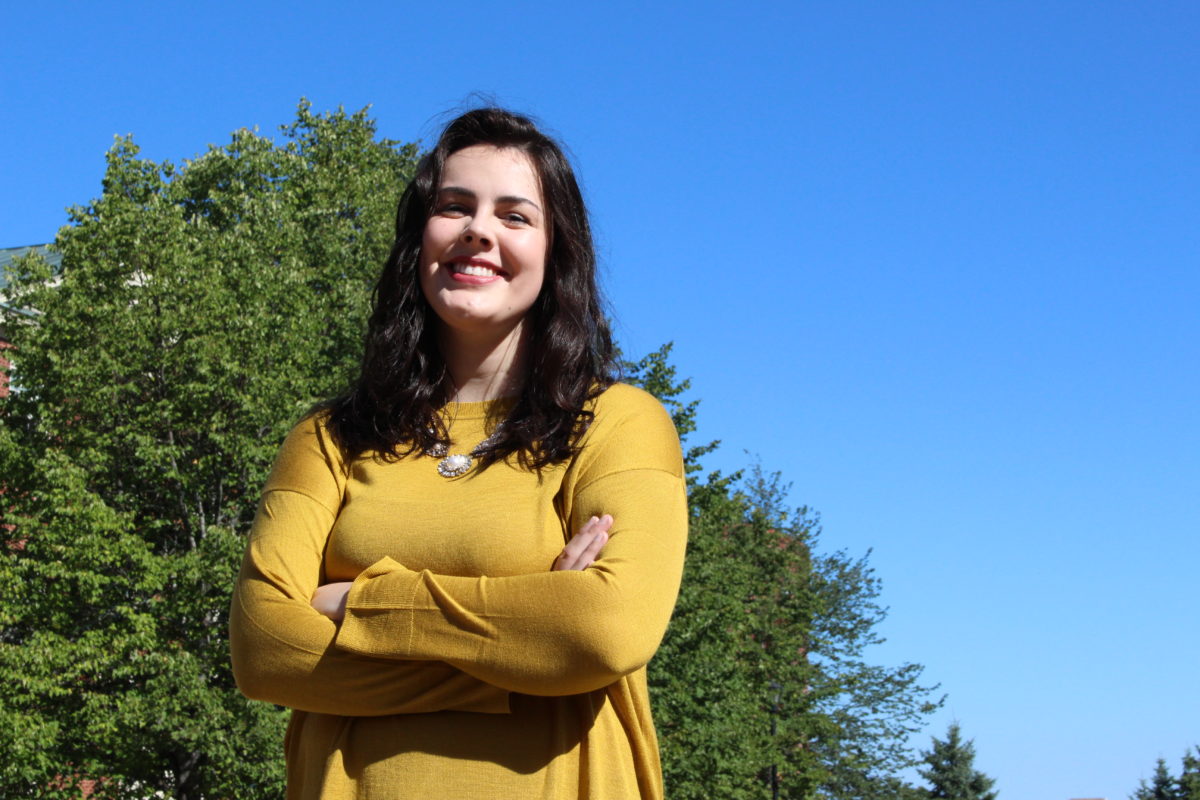A committee dedicated to reducing alcohol harm among students is almost ready to get working.
Third-year student Rebecca Kingston is spearheading its campaigns. St. Thomas University’s project will be a part of Keep It Social, an Atlantic organization which encourages social drinking while discouraging binge drinking in hopes of reducing alcohol-related harms on campus.
“This is different from other campaigns because other campaigns just say don’t drink and they’re like scare campaigns,” Kingston said.
“You’ve probably seen pictures with people with toe tags like in the morgue like, ‘You’ll drink ‘til you die!’ … or a noose that looks like a bottle.”
“That’s not something that students respond to because students never think that they’re going to be that person.”
Kingston, who is the social inclusion representative for the STU Students’ Union, said the idea came about after she was contacted by Scott Duguay, associate vice-president of enrolment management. They sent out emails and took to social media to gauge interest in the project throughout the summer. Kingston said she’s received many messages from students and she’s “absolutely overwhelmed with the support for it.”
Now, she’s putting the finishing touches on the general plan for the committee before it actually sits down. But she said she’s already got some ideas in store, including events where students can gather and have a few drinks and various on-campus and social media campaigns.

Collaborative approach
In August, University Affairs reported 36 Canadian colleges and universities have teamed up in order to curb high-risk drinking.
The Postsecondary Education Partnership – Alcohol Harms, which Duguay is the co-chair of, would offer resources and ideas but would leave room for institutions to create their own campaigns, he said.
A 2016 survey of 43,780 students from 41 Canadian universities relayed the risks associated with binge drinking, which is defined as consuming between four to five drinks or more in one sitting.
About 18 per cent reported physically injuring themselves, 24 per cent said they had unprotected sex, 29 per cent forgot where they were or what they did and 38 per cent admitted to doing something they later regretted due to alcohol consumption.
Despite administrations coming together, Kingston said the most important messaging at STU will be peer-driven messaging.
“I think where a lot of the message is going to come through is when you’re drinking, your friends are drinking, your friend has too much and you’re like, ‘Hey, let’s calm down,’” she said.
A good example of this, Kingston said, was seen during this year’s welcome week.
At a STUSU meeting on Sept. 14, welcome week chair Morgan Matheson and residence representatives confirmed no ambulances were called to houses or events concerning alcohol-related incidents.
One contributing factor was the decision to lift the dry week ban early.
The ban, prohibiting students from drinking during welcome week events, is usually lifted at 8 p.m. on Saturday prior to the social dance at 10 p.m. This year, Matheson and welcome week coodinator Hannah Zamora changed it to 4 p.m. to prevent students from drinking too much too fast.
Matheson said this kind of messaging is extremely important for all students, but especially first-years. He said the dry component to welcome week was “less hyped up and gave more time [for] the students to ease into drinking and to feel out their limits.”
Because students begin walking down to the social around 9 p.m., Matheson said students don’t usually see pacing themselves as an option. He’s seen as many as three ambulances called to one residence in one night, so he’s supportive of Kingston’s initiative.
“Scott Duguay gave Hannah and I plenty of advice and was a real driving force to ensuring that welcome week went smoothly,” he said.
“Scott is working very closely with Rebecca … She’s seen the culture around STU for the past few years, and with her and Scott teaming up to lead this campaign here at STU, I know that this campaign will do great things and really change the culture around drinking.”
Kingston said calling it a dry week rather than a drinking ban or liquor ban was less negative language as well, which she hopes to make a staple in her campaigns.
Finding a common ground
She said finding a common ground between not drinking and drinking too much will allow more students to feel more comfortable in social environments.
“I didn’t drink when I came to university, and I just felt really left out … I just didn’t like the feeling of you either don’t drink at all or you’re crazy,” she said.
Kingston said she hopes the Keep It Social campaigns will allow students to understand and appreciate what they see in movies isn’t reality.
“I think there’s a big expectation for a lot of people, like, ‘I’m away from home, my parents can’t tell me what to do, I’m just going to do whatever I want,’ and sometimes that can have unintended consequences.”
She said her plan is to have that peer-driven messaging drive the campaign home in hopes of creating a project that sticks with students for years to come.
“I can put up a hundred different posters around campus, but if it still looks like the administration telling us what to do, it’s not going to get off the ground,” she said.
“What this does is it says, ‘It’s okay to drink as long as you do it with other people and within reason.’”